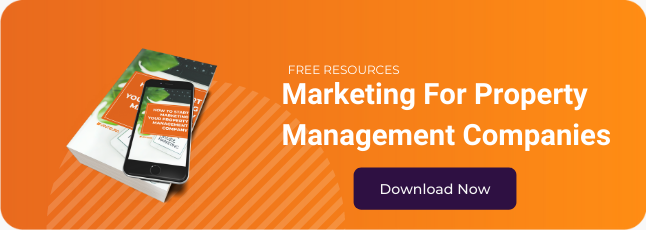Using social media for property management companies can bring many benefits to your business. It has changed the way people communicate, do business, and how they view companies. If you’re starting out then it helps you get your name out there, and if you’re well established then you can use it to network and get reviews.
There are lots of social media channels, but we’re going to focus on the big four: Facebook, Twitter, Linkedin, and Instagram. We’ll be doing an overview of what those social media platforms are like, who uses them, and how you would use them. We’re then going to look at the benefits, what to post, and how often to post. In this article, we make the assumption that you know the basics of social media if you don’t then this article is very helpful.
Helpful Tips:
- You should always create your own business account. On Facebook and Linkedin that means that you create a page, on Instagram and Twitter create a business account.
- Fill in all the information for your profile, include a picture (a business logo is perfect), a cover photo (your office/team/city), a link to your website, and a description of your business.
- You don’t need to have accounts on all four of these platforms. In fact, I would recommend that you only have one or two that you use regularly.
- If you won’t remember to post regularly, you can use tools, such as Hootsuite to help you program your posts.
Social media platforms
Let’s start with the most famous social media platform. According to Statista, they have 2.9 billion users, which is around twice the population of China. Basically, everyone is on Facebook. However, the average age of an American Facebook user is 40 years old. That is important to consider when you decide if you should be active on Facebook.
It’s remained so popular because of how flexible it is. People can have profiles, post on their timelines, and interact with their friends’ posts, but businesses can (and should) have their own pages. You can use Facebook to post your blog articles, share thoughts, ideas, and triumphs.
Twitter is a very fast-paced social media platform. Tweets only appear on your follower’s feed for a few hours before they get replaced with newer tweets. You only have 280 characters per Tweet, so it’s very to the point and full of personality. It’s a very chatty social media channel with people replying to tweets quickly and wittily. It’s also often used for customer service, where customers tweet you and brands send them a direct message to solve their problems.
Linkedin is the professional social media, it’s used for networking. There are a lot of property managers there, and it’s useful to join their groups, network and see what other people in the industry are doing. Stories that disappear after 24 hours are now being added to Linkedin to give it a less formal feel. Having said that the platform continues to be based on what professionals think, and it revolves around business. It’s great for keeping up with experts and trends in your field. It’s also great for sharing more in-depth blog posts and ideas.
Instagram is viewed as a younger platform, 35% of its users are between the ages of 29 and 34. It’s a very visual platform, it’s based on images that you post on your feed or in stories that disappear after 24 hours. If you want to share what you’re doing day to day and show off incredible scenery or cityscapes then Instagram is the perfect platform. It’s also a good platform to do competitions on, where people can tag you to show off their amazing communities.
Benefits of social media for property management companies:
We’ve looked at the social media platforms and the audience they attract, but why should you use social media? Here are three benefits.
Brand awareness
Social media helps you create more awareness of your property management company, letting people know that you’re here and that you’re trustworthy.
Reviews and comments from clients make your brand seem more trustworthy, and even if someone posts a negative review if you handle it calmly and try to help them, this makes your brand look good.
Marketing
Whenever anyone likes a post then it appears on a wider audience’s feed, as their friends see what they’ve liked. If you use a hashtag, then you will appear in the feed for that hashtag. This is free advertising for you and your company. If you wanted to invest a bit of money, then you can use social media’s paid advertising to bring your brand to people in your area.
Market trends and benchmarking
Social media is a great way to see what the market trends are, using a hashtag like #apartmenttrends then you can quickly see what’s going on in your market. It’s also an efficient way to benchmark your company against your competitors. You should be able to find your direct competitors and see what they’re doing and if it’s working. Then you can see what you do and don’t like and where your company should improve.
Posting on your company’s social media
This is the tricky bit, what should you post your company’s social media platform(s)?
What to post
What you post to each network will depend on which social media channel you’re on. However, one format that works on all platforms is video.
You could share blog posts you’ve written or ones that property managers you admire have written, you can share information in your area or give new businesses a boost by recommending them. You should ask clients to write reviews on Facebook, but if someone emailed you with their feedback you could post it (with their permission).
Blog posts are a good thing to tweet, they can be by you or an expert in the field. Twitter’s a good place to share short snappy stories. It’s also a great place to share news and information, share news from your area or trends in your field. Make sure to keep your eye on hashtags that are relevant to property management. You should also follow competitors to see what they’re up to.
This is the place to show your hard-earned wisdom and experience. Talk about specific cases that taught you about your industry or job. Share other professionals’ opinions and why they’re important. Reach out to other people in your industry and make connections. You should also share blog posts that you’ve written here to Linkedin.
This is a platform that’s based on photos and videos. If you enjoy taking pictures, then Instagram is the place for you. Take pictures of your area, at events you attend, and in communities that you visit. Do “days in the life” with you and employees so people get to know you and your team. You can use pictures to talk about blogs that you’ve written or to write about something that matters to you.
The other thing to consider is the tone that you want your property management company to have on social media. Think about the tone you and your team have in real life and how you want to come across. Do you want to be funny, serious, formal, or chatty?
When to post
You’ve created social media accounts for your company and you know what you want to post, now what? Often people get all excited, and start posting a lot and then get bored or distracted and stop. This isn’t an effective way to manage a social media account. The answer is to create a content calendar. This allows you to plan what you’ll post a few months in advance. Posting consistently improves how much you show up on your followers’ feeds.
You can use a tool to allow you to write your posts in advance and program when they’ll be posted. Or you can be less rigid and just decide what you want to post when so you have a guide. Having a content calendar can help you think of ideas, you won’t have to be in a constant panic of what to post.
Analytics and paid ads
A great advantage of using business accounts or having a business page is that you can see your analytics. This aspect of social media really can help your property management company. This helps you to see what posts were the most popular, and how many people it reached. All social media platforms have analytics, and you should check them when you’re planning what content you’re going to post for the next few weeks or months.
If a post is doing really well in your analytics then you could consider paying to make it into an ad. You include who you want to see the ad and Facebook, Twitter, Linkedin, and Instagram will make your post appear on their feed. This is not something that you have to do, but if a social media channel is helping you to achieve your goals then it’s worth considering. You do increase your audience by paying to boost a post on social media.
Conclusion to Social Media for Property Management
Using social media for property management businesses can increase the amount of people who have heard of your company, and could recommend you or start working with you. Choose one or two social media platforms to focus on and post regularly to ensure that you are getting the most out of it.





